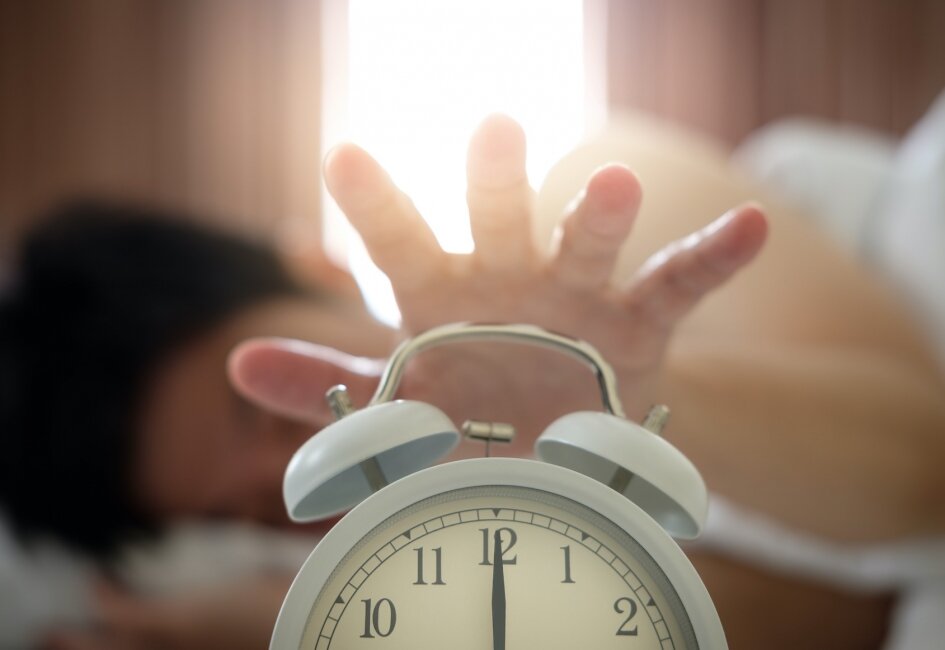Hit ‘snooze’ when the clocks go back?
British Summer Time (BST) officially ends and the clocks go back an hour at 2:00 am on Sunday 25th October, meaning an extra hour of sleep - but is that good thing?
The goal of changing the clocks twice a year - to use daylight to its maximum advantage - is generally recognised to be of universal benefit. But BST has been controversially debated through history: proponents have proclaimed the benefits of BST, including saving energy, lowering our carbon footprint, reducing driving accidents, providing more daylight for outdoor post-work activities, cutting crime, and many others. But BST also has had many detractors - from farmers to parents of school children, especially in the north of the country - who have waged contentious battles against it.
The UK has tried year-round BST previously. The result was a large reduction in road casualties between 1968 and 1971, thanks to the lighter evenings, but the experiment was ended due to complaints from northern parts of the UK, where mornings were darker as a result.
Many would like to see year-round BST reinstated. Some would even like to see our clocks pushed a further hour ahead in the summer, with the UK moving to the same time zone as Spain, which sits on the same line of longitude. According to a 2010 analysis, such a move would give people in Birmingham an extra 301 hours of after-work sunlight each year. People around Glasgow and Edinburgh would get 175 extra hours, and even people as far north as Aberdeen should gain 159 hours. It is also likely to reduce the nation’s carbon footprint by about 2.2 per cent as people would need to use less electricity for lighting in the evenings, when they tend to be more active than in the early mornings.
Calls for year-round BST are championed by the Royal Society for the Prevention of Accidents, which says the move will reduce road deaths currently caused by darker evenings in autumn and winter. But several petitions pushing for change have failed, so the debate will continue, especially now as we begin to untether from European legislation.
British Summer Time and Sleep
In reality, many people don’t, or can’t, take advantage of the coming weekend’s extra hour of sleep. And the resulting shift in the body’s daily sleep-wake cycle can disrupt sleep for several days to follow.
Research teams around the world have tried to determine if losing or gaining an hour of sleep because of British Summer Time make a difference in health. American researchers, writing in the American Journal of Cardiology, showed a small increase in heart attacks on the first day (Sunday) of the spring transition to Daylight Saving Time (DST - the U.S. equivalent of BST) when we “lose” an hour of sleep. This was echoed in a Swedish study, published in the New England Journal of Medicine, showing an incremental increase in heart attacks after the clocks go forward in March; a similar sized decrease was observed when the clocks go back in October.
The focus on gaining or losing an hour of sleep overlooks the bigger picture—the effect of clocks going back and forward on the sleep cycle. An excellent review in the journal Sleep Medicine Reviews by Dr. Yvonne Harrison, a senior lecturer at Liverpool John Moores University, concluded that a seemingly small one-hour shift in the sleep cycle can affect sleep for up to a week.
When the clocks go back later this month, only a minority of people actually get that promised extra hour of sleep. During the following week, many people wake up earlier, have more trouble falling asleep, and are more likely to wake up during the night. People who tend to be so-called short sleepers, logging under 7.5 hours a night, and early risers (rise with the lark….), have the most trouble adjusting to the new schedule.
Similar problems are seen in the Spring when clocks go forward. Again, the adjustment is harder for early risers and short sleepers.
It’s difficult to side-step the effects of British Summer Time on sleep. But generally an extra hour sleep at this time of the year isn’t a travesty, as long as you’re not overdoing it. It’s when the clocks go forward, we need to take a little care.
Four simple tips to make sure you and your body clock stays healthy:
Make gradual shifts
Roughly ten days before the clock go back, go to bed and wake up 10 minutes to 15 minutes later each day. This helps your body slowly adjust. For kids, when the clocks go back, this gradual approach can still help - follow the same guidelines - just push their wake-up time and bedtime a little later in gradual steps, rather than earlier each day as you would do when the clocks go forward in the Spring.
Keep your schedule
Try to manage your schedule accordingly. Keep things as close to normal as possible in the days that follow the clocks going back. If you usually wake at 8 a.m., do it the morning of the time change, if you can (although the clock says 9 a.m.). Be consistent with eating, social, bed and exercise times, too.
Listen to your body
If you’re groggy, unsettled or anxious in the days following the clock changes, make sure you relax and take things easy to give your body clock time to adjust.
Enjoy the extra hour in bed on Sunday
Obviously.

